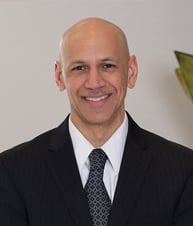In 2022, 51 state attorneys general formed the nationwide Anti-Robocall Litigation Task Force to investigate and take legal action against telecommunication companies responsible for the majority of robocalls into the United States. The bipartisan nationwide task force has one goal: to cut down on illegal robocalls.
The task force acted swiftly and recently filed a major lawsuit against Voice over Internet Protocol (VoIP) provider Avid Telecom, its owner Michael D. Lansky, and its vice president of operations and sales, Stacey Reeves, accusing them of making and transmitting billions of illegal robocalls.
The task force began its investigation into Avid Telecom on August 1, 2022, when it issued a civil investigative demand―a request for documents and information. When Avid Telecom failed to fully respond to the CID, the task force asked a court on November 1, 2022 to compel Avid Telecom to respond.
By May 2023, the task force had collected a significant amount of information on Avid Telecom’s business practices and filed its 141-page lawsuit on May 23. The lawsuit asserts claims under the Telephone Consumer Protection Act, Truth in Caller ID Act, and numerous state consumer protection, advertising, deceptive trade, and telecommunications statutes.
Avid Telecom provides services to retail customers that place robocalls and telemarketing calls, as well as customers that are other voice service providers that transmit robocall and telemarketing calls. According to the lawsuit, VoIP providers like Avid Telecom cater to callers using robocalling technology that allows high call volumes in short durations. These robocallers can make multiple calls in a single second. According to the task force, Avid Telecom allegedly made or attempted to make 24.5 billion calls over a four-year period, and 93% of those calls were less than 15 seconds long.
Not only is the volume of calls remarkable, the claims in the lawsuit are stunning. The lawsuit says the defendants facilitated the transmission of robocall campaigns in which the telemarketer:
- Misrepresented material aspects of the goods or services.
- Misrepresented the telemarketer’s affiliation with corporations and government entities.
- Made false statements to induce consumers to purchase goods or services.
- Failed to transmit the real telephone number and the name of the telemarketer in the recipients’ caller ID.
- Called telephone numbers on the National Do Not Call Registry.
- Initiated outbound telephone calls that delivered prerecorded messages.
- Failed to disclose the identity of the seller of the goods or services truthfully.
For example, the calls that Avid Telecom routed to consumers included alleged scams related to social security disability, Medicare rewards, auto warranty extensions, employment requests, and subscription-based companies.
Apparently, Avid Telecom also “spoofed” caller IDs in an effort to circumvent the authentication requirements of STIR/SHAKEN. The spoofed caller ID numbers came from federal and state law enforcement agencies, including the Internal Revenue Service, Federal Bureau of Investigation, Department of Homeland Security, U.S. Secret Service, Federal Communications Commission, Federal Trade Commission, and numerous others. The spoofed caller IDs were also associated with many well-known companies.
The lawsuit claims that Avid Telecom also provided substantial support and assisted sellers and telemarketers engaged in illegal robocalling, including:
- Making or routing its customers’ illegal calls to consumers.
- Protecting one of its customers when the owner became the subject of federal and state law enforcement actions.
- Providing customers with the telephone numbers used to make illegal calls.
- Providing customers with leads to make illegal calls.
- Providing customers with expertise on how to run their illegal robocalling and telemarketing schemes.
The lawsuit also outlined the task force’s case for individual liability for Lansky and Reeves. Lansky allegedly controlled Avid Telecom’s corporate bank accounts, credit cards, checkbooks, and PayPal accounts, and he commingled money from those accounts with his personal business. Lansky and Reeves also directly participated in the conduct and directed others who committed illegal conduct knowing it was illegal.
The task force claims Avid Telecom received 329 complaints from the USTelecom-led Industry Traceback Group (ITG) that it was carrying illegal robocall traffic, including calls made to phone numbers on the National DNC Registry. Thus, the task force says Avid Telecom knew that its conduct was illegal and was violating telemarking laws. The purported prior express consent Avid Telecom submitted as evidence of authorization to make some of the calls was invalid and made clear that those calls violated the Telemarketing Sales Rule. The lawsuit further details numerous notices that Avid Telecom received from multiple providers that its customers were sending suspected illegal robocalls.
The lawsuit also details that several of Avid Telecom’s customers were subject to enforcement actions, lawsuits, and cease and desist letters, some of which resulted in settlement, fines, and judgments, and that Avid Telecom knew about these matters. The task force claims Avid Telecom knowingly worked with―and in some cases assisted―these customers despite their history of sending illegal robocalls.
However, despite the voluminous number of complaints and notices from multiple sources that its customers were making illegal robocalls, Avid Telecom continued offering services to entities and persons making these illegal robocalls.
The lawsuit seeks civil penalties, attorneys’ fees and costs, and a permanent injunction to prevent Avid Telecom from making, initiating, and transmitting illegal robocalls to consumers in the United States.
Finally, on June 7, 2023, the Federal Communications Commission (FCC) issued a cease and desist letter to Avid Telecom. The letter stated that Avid Telecom is originating illegal robocall traffic for one or more of its clients. The letter directed Avid Telecom to investigate the claims and take steps to prevent being a source of illegal robocalls.
Avid Telecom has not yet filed a response to the lawsuit in court, and it is unclear if it has responded to the FCC’s letter.
Entities providing communications to its consumers by robotext or robocall and those that use VoIP providers should carefully review this lawsuit. Alston & Bird’s Telecommunications Team is able to assist with any questions entities may have on these proposed regulations.
